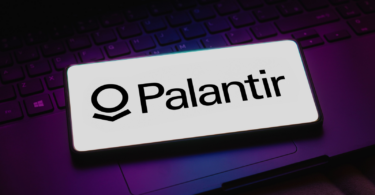If you’ve ever been a landlord, you know finding reliable tenants is everything. Tracking down late payments every month makes your passive income stream a lot less passive.
That’s one reason why so many investors like real estate investment trusts (REITs) — publicly traded companies that collect rent from their properties and pass it along to shareholders in the form of dividends.
Investors don’t have to worry about screening or evicting tenants. Instead, they simply sit back and enjoy the dividend checks rolling in when they pick a winning REIT.
And some REITs have seriously blue-chip tenants — including the U.S. government. We all pay taxes, so why not get some money back in quarterly distributions?
Here are a couple ways to act as landlord to Uncle Sam. With markets being volatile, a steady stream of rental income might make you sleep better at night.
Easterly Government Properties (DEA)
Easterly is not the largest REIT on the market, but it stands out among its peers for a very simple reason: The company’s mission is to acquire, develop and manage commercial properties leased to the U.S. government.
In its latest investor presentation, the REIT said 98% of its lease income is “backed by full faith and credit of the U.S. government.” Few tenants are more reliable.
As of Dec. 31, Easterly’s portfolio consisted of 86 properties totaling 8.7 million square feet. They were 99% leased, with a weighted average remaining lease term of 10.3 years.
The company pays quarterly dividends 26.5 cents per share. At the current share price, that translates to an annual yield of 7.3%.
While Easterly might seem like an obvious choice, given the caliber of its tenants, the stock is actually down 30% over the past 12 months.
And that could give contrarian investors something to think about.
While Easterly has received an average rating of “hold” from Wall Street analysts, their average price target of $17.25 is 18% higher than where the stock sits today.
Office Properties Income Trust (OPI)
As the name suggests, this REIT owns a lot of office buildings — its portfolio consists of 162 properties totaling 21.2 million square feet.
While real estate prices in the U.S. have been trending upward, OPI hasn’t gotten much investor attention.
Over the past 12 months, OPI shares have tumbled 40%.
But there is something that makes the company stand out: it has a quarterly dividend rate of 55 cents per share and an annual yield of 14.8%.
To put that in perspective, the average S&P 500 company yields just 1.7% at the moment.
Unlike Easterly, OPI is not a pure-play government landlord. But the U.S. government is the REIT’s biggest tenant, contributing 19.1% to its annualized base rent.
Its other top tenants include big names like Google parent company Alphabet, the State of California and Bank of America.
The company says it earns 63% of its revenue from investment grade tenants — that is, tenants that pose a low risk of default.
In Q4 of 2022, the REIT leased 705,000 square feet of space for a weighted average lease term of 10.1 years.
Just like Easterly, OPI has received an average rating of Hold from analysts but the best could be yet to come: the average price target on OPI is $19 — roughly 28% above the current levels.
Further Reading: The A.I. Giants of 2023
The race for superior AI is heating up, so I asked OpenAI's ChatGPT program to give me a list of the biggest players in AI right now.
It spat out this list in about three seconds…
- OpenAI
- Google (Alphabet)
- Amazon
- Microsoft
- IBM
- Baidu
- Intel
- Alibaba
- Tencent
These are well-known companies you'd probably hear Jim Cramer talk about on CNBC.
But there's a much bigger opportunity in AI right now.
The mainstream media hasn't jumped on it yet – which is surprising since Elon Musk is involved.
This new video shows the groundbreaking technology inside Elon's “secret project” could change the way we live forever.
The Wall Street Journal said this technology “will save the economy.”
The CEO of Google said, “It's the most important tech humanity is working on.”
Microsoft's CEO said it's “the defining technology of our time.”
It could revolutionize every industry in the world – and unlike the companies listed above, the potential upside is enormous.
Right now, it's trading around 38 cents.
Originally published on MoneyWise.com
The content provided on MoneyWise is information to help users become financially literate. It is neither tax nor legal advice, is not intended to be relied upon as a forecast, research or investment advice, and is not a recommendation, offer or solicitation to buy or sell any securities or to adopt any investment strategy. Tax, investment and all other decisions should be made, as appropriate, only with guidance from a qualified professional. We make no representation or warranty of any kind, either express or implied, with respect to the data provided, the timeliness thereof, the results to be obtained by the use thereof or any other matter.






